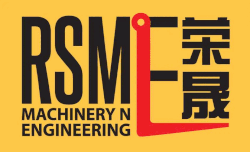
When it comes to forklift operations, every component plays a key role, but tyre weight is often overlooked. Beyond simply keeping the forklift grounded, the weight of the tyres directly affects stability, load-bearing capacity, and overall performance. Think of a forklift as a precision tool – the tyres are its foundation, providing the balance, grip, and support necessary to operate safely and efficiently.
Types of Forklift Tyres and Their Weights
1. Pneumatic Tyres
Pneumatic tyres are the all-terrain champions, filled with air to provide a cushioned, smooth ride. They are ideal for outdoor operations and rough surfaces like construction sites and yards.
Average Weight: 13.6 to 45.4 kg (30 to 100 pounds) per tyre.
Best For: Uneven, rugged terrain where durability and comfort are key.
2. Solid Tyres
Solid tyres, made from dense rubber or polyurethane, are built for durability and resilience. They are puncture-proof and perfect for indoor environments like warehouses where smooth, consistent surfaces are common.
Average Weight: 22.7 to 68 kg (50 to 150 pounds) per tyre.
Best For: Indoor applications requiring durability and minimal maintenance.
3. Cushion Tyres
Compact and lightweight, cushion tyres are ideal for tight spaces and smooth, paved surfaces. They offer excellent manoeuvrability, making them perfect for warehouses and distribution centres.
Average Weight: Lighter than solid tyres.
Best For: Indoor operations requiring precision in confined areas.
Factors That Influence Forklift Tyre Weight
The weight of a forklift tyre isn’t arbitrary; it’s carefully determined by several factors:
Material Composition:Tyres made from rubber, polyurethane, or hybrid materials vary significantly in weight and durability.
Size and Structure:Larger tyres contain more material, increasing their weight, while structural reinforcements add further stability.
Tread Patterns:Deeper, more intricate tread designs require more rubber, adding to the overall weight while improving grip and traction.
Why Tyre Weight Matters for Forklift Safety
Correct tyre weight is essential for forklift safety and stability. Heavier tyres enhance balance, especially when lifting substantial loads, reducing the risk of dangerous tipping incidents. On uneven or rugged surfaces, tyres with the right weight and tread can prevent slips and loss of control.
Forklift stability relies on even weight distribution across the machine. Improper or mismatched tyres can compromise balance and make the forklift unsafe during operation, particularly when turning or carrying heavy loads.
How to Choose the Right Forklift Tyre Weight
Selecting the correct tyre weight depends on the forklift’s operating conditions:
Heavy Loads: Opt for heavier tyres that enhance stability and reduce tipping risk.
Indoor Operations: Use solid or cushion tyres that prioritise durability and manoeuvrability.
Outdoor Applications: Pneumatic tyres offer comfort and grip on uneven surfaces.
Understanding your specific operational challenges – such as load size, surface type, and manoeuvrability needs – ensures that the tyres support your forklift’s performance and safety goals.
Maintaining Forklift Tyres for Longevity
Tyres should not be a “set and forget” component. Regular maintenance is critical to monitor tyre weight impact on wear and tear.
Routine Inspections: Check for uneven wear, cracks, and tread damage.
Tyre Pressure: For pneumatic tyres, ensure correct air pressure to maintain balance and performance.
Load Limits: Avoid exceeding load capacities, as this accelerates tyre wear and compromises safety.
Heavier tyres may wear differently compared to lighter alternatives, so proactive care ensures uninterrupted operations and avoids costly downtime.
Innovations in Forklift Tyre Technology
Advancements in tyre design are improving efficiency and sustainability. Innovations include:
Eco-Friendly Tyres: Made from recyclable or renewable materials without sacrificing durability or weight.
Smart Tyres: Tyres equipped with sensors to monitor wear, pressure, and performance, allowing for predictive maintenance.
These modern solutions not only enhance forklift performance but also reduce operational costs in the long run.
Consult the Experts for the Best Tyre Choice
Choosing the right tyres is about balance – performance, safety, and cost-efficiency. Consulting professionals ensures you select tyres that match your operational needs and reduce long-term maintenance costs. Whether you’re navigating busy warehouses or managing outdoor construction projects, the right tyres keep your forklift running reliably and safely.
Conclusion
Forklift tyre weight is far more than a technical specification – it’s a cornerstone of stability, safety, and performance. From pneumatic tyres for rugged terrain to solid tyres for indoor applications, selecting the right tyre weight makes a measurable difference. By staying informed, prioritising regular maintenance, and leveraging modern tyre innovations, you can ensure your forklifts operate at their best for years to come.
Power your operations with the right tyres – because every detail matters.

Comments